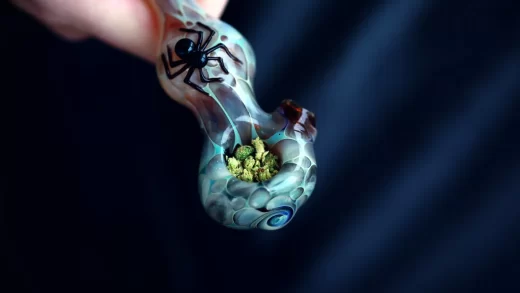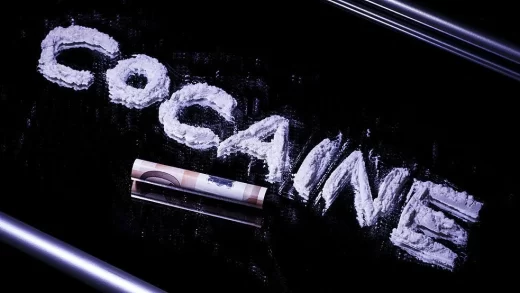How Long Does Crack Cocaine Stay In Your System? Causes & Effects Guide

How long does crack cocaine stay in your system: Cocaine use is forbidden and very addicting. A person’s regular life may suffer if they overuse cocaine.
The three main areas that cocaine impacts are the mind, body, and heart. How long does cocaine last in the body? is the topic of this essay.
Cocaine is not promptly excreted or thrown out of our bodies. Cocaine, on the other hand, will persist in your body for a while.
Typically, cocaine or its metabolites will still be detectable in urine two to four days after the last time the drug was used. How long cocaine remains in urine may, however, be influenced by a number of different situations.
Repeated or persistent drug usage is one of these variables. Cocaine may persist significantly longer in your urine if you or someone you know uses it often. Even up to two weeks following consumption, cocaine use might result in a positive urine test.
United States Cocaine Drug Abuse Statistics
Coca leaves are used to make cocaine, a highly addictive stimulant drug. It is listed as a controlled drug under Schedule II.
This implies that although it has a very high potential for misuse, it may be used therapeutically as a local anaesthetic.
According to statistics on cocaine usage, millions of Americans either use or have used the drug at some point throughout the year.
Back in 2020, the Substance Abuse and Mental Health Services Administration (SAMHSA) conducted a nationwide study that revealed over 2%, or 5.2 million Americans over the age of 12, had taken cocaine the year before.
In addition, researchers discovered in 2021 that youngsters as young as 13 or 14 (8th graders) to 17 or 18 (12th graders) had been exposed to or had used cocaine during the previous year.
These alarming data point to two things. First and foremost, it’s crucial to keep an eye out for impressionable teenagers. Second, the significance of drug testing in identifying cocaine usage before it develops into addiction.
Early diagnosis of cocaine use may help the individuals in question avoid unpleasant withdrawal symptoms.
More significantly, early discovery is essential for a successful course of therapy for cocaine addiction.
Recommended: What Does A Crack Pipe Look Like? 8 Signs Of Additional Use
What Time Frame Does Cocaine Have In Your System?
Drugs may remain in your system for up to many months after you use them, depending on the sort of drug testing or screening technique you employ. Cocaine and its metabolites can do this.
According to the bodily fluid or sample is taken, the following are the typical cocaine detection times:
- Cocaine is detectable in the urine for up to four days.
- Blood or saliva test: Cocaine may linger in the body for up to two days.
- Hair — Cocaine may be found in our hair for a short period of time, up to a few years.
What Could Affect Cocaine Detection Times?
In addition to repeated or extended cocaine addiction, there are a number of additional variables that may alter the time it takes to detect cocaine. These variables might lengthen or reduce the cocaine detection window.
These include, among others:
- Purity of cocaine
- How much cocaine was consumed, or its dosage
- Method of drug administration, such as cocaine chewing, snorting, or smoking
- Coke plus alcohol consumption
- Physical traits including height and weight
- Body fat percentage and the fact that fatty tissue stores cocaine metabolites
- Either low or high blood pressure
- Systolic blood pressure that has increased (can increase the risk of strokes, heart disease and chronic kidney disease)
- Metabolism
- Illness of the kidneys or the liver
- Additional existing medical issues
- PH of urination
- Drug screening technique
Various Cocaine Screening Techniques And Drug Tests
Cocaine barely has a half-life of around one hour. Accordingly, the amount of cocaine’s active ingredient that has reached the bloodstream one hour after use will already be down to half of what it was at the beginning.
Drug tests assess cocaine’s metabolites since cocaine has a short half-life and the body processes it quickly. Metabolites are the leftover substances or by-products from the breakdown or processing of the drug or alcohol we consumed in the body.
Tests for drugs that may identify cocaine in your bloodstream include:
Urinary Drug Test
The most used screening technique is a urine test. Persons who use cocaine are asked to pee into a cup. Following collection, the sample is submitted to a facility for testing for benzoylecgonine, the primary metabolite of cocaine.
Although quick urine tests are readily accessible and often ready in a matter of minutes, they do not give the same degree of precision as lab testing.
However, one drawback of urine testing exists. There have been items that advertise or purport to assist users to flush cocaine out of their systems to fudge urine drug test results, maybe as a consequence of its widespread usage.
In order to produce a false negative drug test result, these items are often intended to be added to the urine.
Blood Tests
The blood flow can only hold onto cocaine for a maximum of 12 hours. Benzoylecgonine, however, may be found in your blood for up to 48 hours or two days.
Blood tests are less frequent than urine or saliva testing due to their invasiveness and lengthy wait times for results.
Only hospitals and other such medical institutions regularly provide these drug testing.
Saliva Test
A saliva drug test can only find cocaine or its metabolites one to two days after consumption, much as blood testing.
Typically, a medical expert or tester uses a specialised swab or instrument to obtain the saliva sample.
This is immediately and promptly placed into a tube to safeguard the sample. This makes saliva testing potentially more reliable or harder to rig than urine tests.
Hair Test
Of all the common drug test choices, hair cocaine testing may be the most challenging. The best opportunities for cocaine detection, nevertheless, are provided by a hair sample or specimen.
Even months after consumption, depending on the length of the hair samples or shaft, the test may still detect cocaine metabolites.
Additionally, segmental hair analysis may be used to determine specific patterns of cocaine usage or drug exposure from month to month.
Recommended: How To Crack Lower Back Tailbone? 5 Causes & Treatment
How Long Does It Take To Feel Cocaine’s Effects?
The time it takes for cocaine’s effects to become noticeable, or their onset is almost instantaneous.
Cocaine and/or crack cocaine, which is a stimulant, may have the following effects at tiny doses:
- Euphoric
- Talkative
- Active
- Mentally alert
- Hypersensitive
The intensity of the cocaine effect, which produces a high or stimulating effect, increases with how quickly the body absorbs cocaine. Snorting cocaine often has a slower start but lasts longer than other methods.
However, the effects of smoking cocaine last for a shorter time—often no more than 10 minutes.
Effects Of Cocaine Short-Term Use
The detrimental consequences of cocaine may be felt by everyone, including those who do not battle addiction or misuse.
Even occasional or infrequent use of cocaine may have short-term negative consequences, especially if a significant quantity is inhaled or eaten.
Among the immediate impacts of cocaine consumption are:
- Extreme exhilaration
- Constricted blood vessels
- Increased body temperature
- Dilated pupils
- Restlessness
- Anxiety
- Paranoia
- Hallucinations
- Irritability
- Tremors or
- Twitches of the muscles
- Vertigo
- Gastrointestinal problems and back discomfort
- Appetite reduction
- Difficulties sleeping
In particular, cardiovascular and neurological problems may result from these impacts, as well as other medical concerns.
Heart attacks, seizures, strokes, or comas are a few examples of such problems.
Long-Term Effects And Risks Of Cocaine Use?
What constitutes a high cocaine intake? Drug dependency is more likely to develop with frequent or recurrent cocaine usage.
Substance misuse and addiction may result as a result of this. Cocaine abuse exposes you to a variety of hazards and dangers, many of which may have a long-lasting detrimental effect on your life and the lives of those you love.
Our brain is noticeably affected by cocaine. As a result, continued usage may change the way your brain operates permanently, including those involved in problem-solving, judgement, memory, attention, and even movement. It might also result in the following:
- Brain shrinkage or cerebral atrophy
- Temporary ischemic episodes, often known as ministrokes
- Cerebral vasculitis, often known as blood vessel inflammation in the spine and brain
Cocaine usage has some comparable, but more severe, long-term consequences on the body than its short-term effects.
These symptoms may include irritation, panic attacks, paranoia, and hallucinations, as examples.
These side effects may sometimes cause a full-blown psychosis when the individual loses all sense of reality or contact with it.
Among cocaine’s other long-term consequences are:
- Heart blood vessels sustain long-term harm
- Ticking or racing heartbeat
- Harm to the liver and kidneys
- Sinus tissues that have been harmed or damaged
- In situations of cocaine use, respiratory failure
- Higher chance of TB and pneumonia
- Extreme dental decay
- Malnutrition
- Losing weight
- Disorders of the mood
- Bad depression
- Disorientation
infertility or other issues relating to reproduction and sexuality
Options For Addiction Treatment At Care Plus For Cocaine Abuse
Many treatment facilities, whether inpatient or outpatient psychiatric practises or programmes, may provide efficient solutions to assist you or a loved one in coping with and overcoming drug use disorder.
For both adults and teenagers, Care Plus New Jersey provides outpatient programmes for further healing.
Our qualified medical practitioners are familiar with addiction, mental illness, and drug use and misuse.
Both cocaine use disorder and mental health difficulties may be treated concurrently with the use of behavioural therapy.
Not only does CarePlus New Jersey provide addiction treatment services to the person seeking expert medical counsel, but also to the whole family.
It requires bravery to treat any mental health condition and recover from drug addiction. Take the first step in your rehabilitation by getting in touch with us right now.














